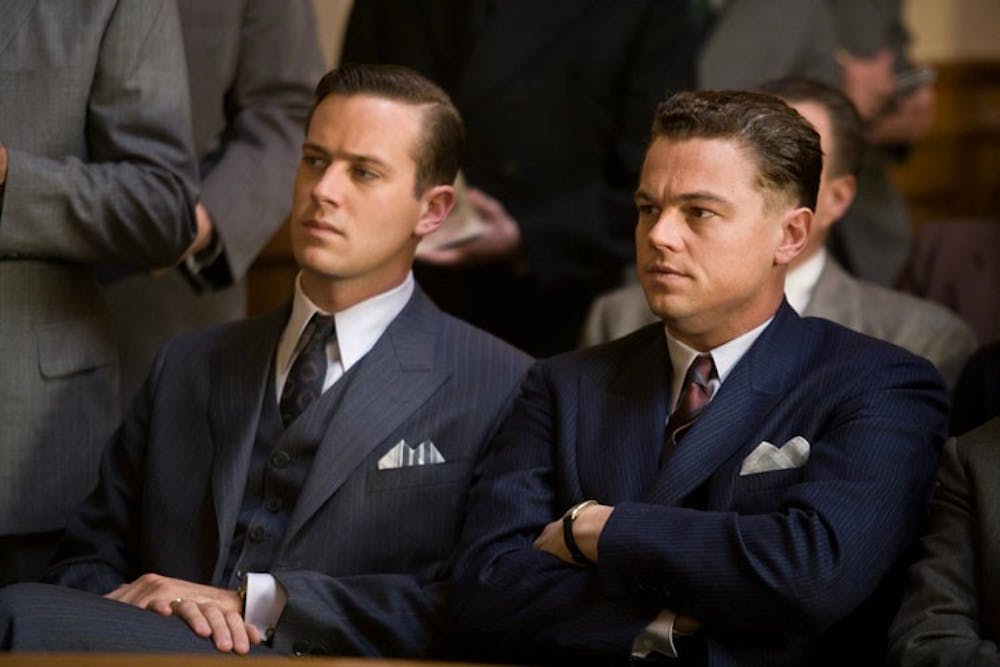When you’re the first of your kind, there’s bound to be drama.
Such was the case for J. Edgar Hoover, the first Director of the Federal Bureau of Investigation. And now, mainstream audiences will get to see Hoover in a new light thanks to the Clint Eastwood directed biopic “J. Edgar” now in theaters everywhere.
Eastwood’s “J. Edgar” is a vivid tale that explores the private life of J. Edgar Hoover (Leonardo DiCaprio, “Inception”) between two timelines following his last days at the FBI in the early 1970s and 50 years prior, both retold as he dictates his memoir to be typed.
The 1920s timeline revolves around a few cases -- primarily the infamous Lindbergh kidnapping case which in kidnapping beening roled as a federal offense.
The more recent timeline focuses on the social and political struggles of the 1960s, like the election of President Nixon and his eventual retirement, the assassination of John F. Kennedy and Hoover’s desire to stop Martin Luther King Jr.
However, the film mostly focuses on his private relationships and internal struggles presented through the most notable claim that Hoover was gay.
Eastwood’s rendition of Hoover’s life illustrates his most intimate relationships with that of the Bureau; his mother (Dame Judi Dench, “Quantum of Solace”); life long personal secretary, Helen Gandy (Naomi Watts, “King Kong”); and his protégé/second-in-command, Clyde Tolson (Armie Hammer, “The Social Network”), who some believed was Hoover’s lover.
But it was confusing as to whether Hoover was intended to be a character to sympathize with or disapprove of.
DiCaprio only slightly varies from the tormented character he’s crafted so well, as seen in recent films like “Shutter Island,” “Revolutionary Road” and “Inception”. However, he shines most in the end of the film as his character’s true internal struggle is revealed.
Dench and Watts both play characters on opposing sides of Hoover’s dilemma, but besides the climax, they both fall behind as only secondary characters. Although Watts is introduced very early on, she isn’t given much screen time and, despite being such a vital character in the end, her story is almost stopped midway.
It was Hammer who brought the best performance as Hoover’s alleged lover. He delivers emotion and passion, which is a good contrast to DiCaprio’s limited emotional capacity.
The filmmaking and plot were well done. The transitions between the two timelines were seamlessly executed and played off of each other well. The complex storyline was captivating, but it is important to keep in mind that the story is purely based on rumors and speculation.
U.S. history buffs will enjoy the occasional humorous references and the historical drama of the time period, but they may also be annoyed by the creative liberties that Eastwood took. However, Eastwood delivers a film that gives an intriguing and amusing look into the often dark, complex personal life of J. Edgar Hoover.





